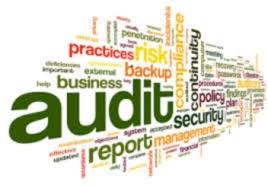The below was released by ATO - https://www.ato.gov.au/Super/Sup/Reciprocal-auditing-arrangements/Reciprocal auditing arrangementsA major risk that relates to the performance of approved SMSF auditors is auditor independence. Blatant independence breaches such as auditing your own SMSF or those for close family members have attracted our attention in the past. More recently we have broadened our focus to include other less obvious independence risks. One such area of concern is in relation to auditors who enter into reciprocal auditing arrangements. A reciprocal arrangement arises where two auditors with their own SMSFs agree to audit each other’s funds. The threat to independence is akin to the scenario of a two partner practice in which one partner is asked to audit an SMSF where the other partner is a trustee. Responses to a recent ATO survey suggested that some auditors believed that independence risks arising from such reciprocal auditing arrangements could be safeguarded against. It is the view of ATO and ASIC that there are no safeguards that can reduce the threats to independence arising from this type of arrangement. Another reciprocal arrangement which raises independence concerns is where two professional accountants who are also SMSF auditors and prepare the accounts for a number of SMSFs, enter into an arrangement to audit each other’s clients’ SMSFs. Safeguards could include ending the reciprocal arrangement or spreading these referrals to a number of different SMSF auditors to minimise reliance on this source for SMSF audits. When applying Accounting Professional and Ethical Standard (APES) 110 Code of Ethics for Professional Accountants, potential threats to independence in a reciprocal audit arrangement may include:
Approved SMSF auditors who continue to engage in reciprocal auditing arrangements will be subject to increased scrutiny. Referral to ASIC may result if we consider SMSF auditors have failed to meet the independence requirements.
Editors Comment:
The ATO and ASIC has addressed the first situation, now I am hoping they will look into other situations. If all above four ideas are implemented by legislation - SMSF Audit will be a real business and skeletons will come out of the closet as I believe - many funds, which breach, never get reported. I am aware, if all of the above four ideas get implemented, some accounting businesses will have to change their procedures etc, which may cost them. However, in my opinion, with these new laws, SMSF space will be truly cleansed. We will then have a system which will be complying - backed up with professional integrity of independent auditors.
Today should be marked as a "win day" for independent SMSF Auditors. Manoj Abichandani ASIC Approved SMSF Auditor If you are in any of the above situation, Click here to learn how to conduct an independent audit of an SMSF in less than half time. For trainning sessions near you Click here. |
| click here to unsubscribe from the mailing list |
Phones are not working due to Optus outage, Please click on Live chat Button.
- $139 + ASIC FEECompany Registration
- Fr $55 + ASIC FEEBusiness Name Registration
- $148.5 (Incl. GST)SMSF
Trust Deed - Fr $165 (Incl. GST)SMSF
Tools- Reduce cost of Documents
$55.00 - Pay By Vouchers - Information
- Commence Account Based Pension
($248.5 incl. GST) - Deed of Confirmation
($248.5 incl. GST) - Add Member to SMSF
($248.5 incl. GST) - Delete Member from SMSF
($248.5 incl. GST) - Change Individual Trustee to Corporate
($248.5 incl. GST) - Change Corporate Trustee to Individuals
($248.5 incl. GST) - Change Corporate Trustee
($248.5 incl. GST) - Declaration of Trust
($220 incl. GST) - SMSF Loan Agreement
($220 incl. GST) - Binding Death Nomination
($75 incl. GST)
- Reduce cost of Documents
- $165 (Incl. GST)SMSF
Borrowing - $97.50 (Incl. GST)Actuarial
Certificate - $495 (Incl. GST)Quantity
Surveyor Rep - Fr $125 (Incl. GST)Trusts
- Reduce cost of Documents
$55.00 - Pay By Vouchers - Information
- Discretionary Trust Deed
($148.5 incl. GST)
($250 incl. GST with Company Trustee) - How Discretionary Trusts work
- Unit Trust Deed
($148.5 incl. GST)
($250 incl. GST with Company Trustee) - How Unit Trusts work
- Fixed Unit Trust Deed
($275 incl. GST)
($372.5 incl. GST with Company Trustee) - How Fixed Unit Trusts work
- Why Use Us
- Document Printing
- Reduce cost of Documents
- FreeJobs
- Our
Fees
-
Register a Company or Business Name 24/7,
we have a direct link with ASICHelping you to set up the right business structure online
Fast, Simple and Easy application like never before
Register Now -
Full technical support for Family or Discretionary Trust,
Unit Trust and Fixed Unit TrustFully online, legally compliant trust deed instantly delivered to your inbox
One stop solution for your trust structure needs
Register Now -
Simplify SMSF management & updates
with dedicated SMSF SpecialistCreate the most technically robust
Self Managed Super Fund trust deed, online in less than 20 minutesMake changes easily for smoother running of your SMSF by using our SMSF tools
Register Now -
Get Trusted & Accurate SMSF Borrowing documents
and Actuarial Certificates onlineGet your borrowing documents ready with SMSF Experts
specialised in Limited Recourse BorrowingOrder instant Actuarial certificates online to meet your actuarial certificate requirements
Register Now -
Order a Quantity Surveyor Report online
for your investment property anywhere in AustraliaPhysical visit. No online spreadsheet
Claim maximum for your Investment Property
Register Now



